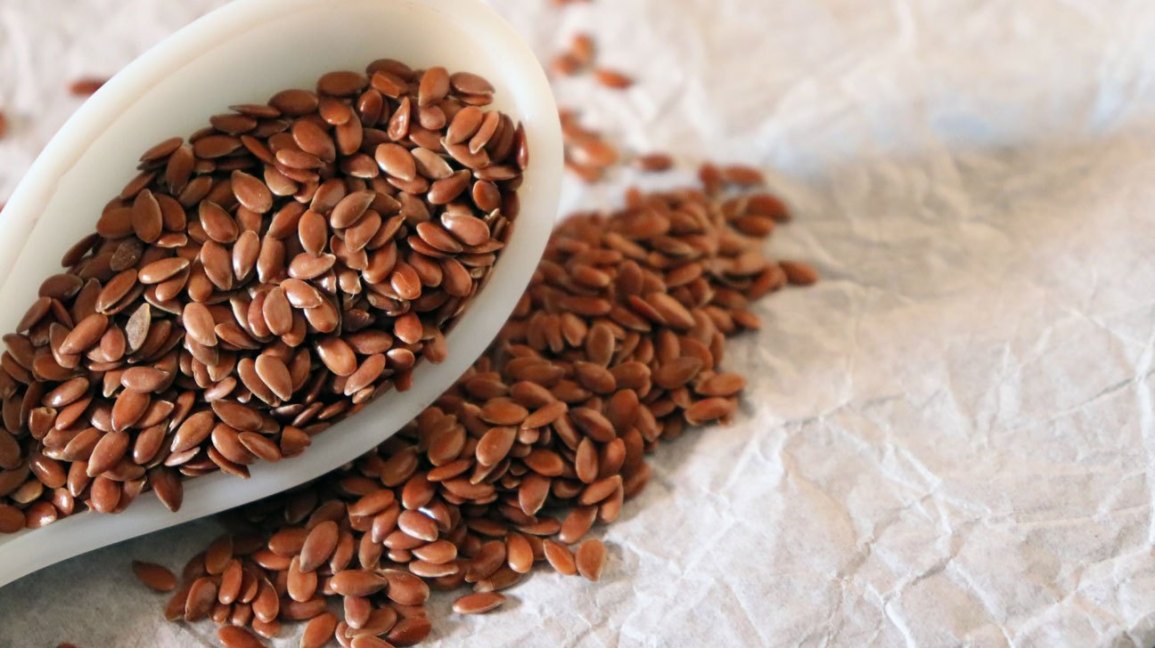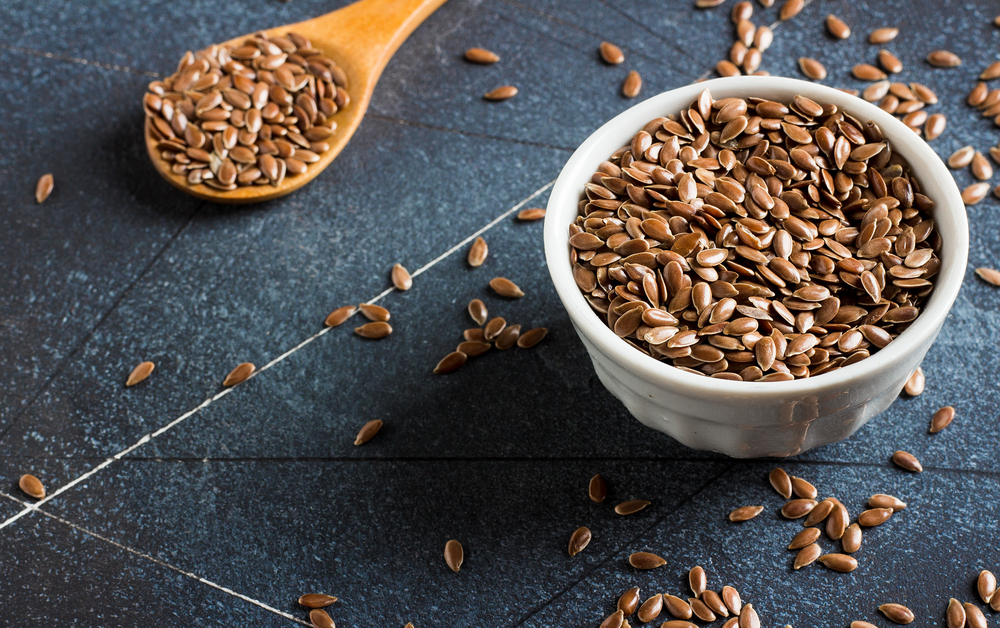Flaxseeds have an earthy and nutty flavor that complements a number of recipes. It is a versatile ingredient and can easily be incorporated into the diet. Flaxseed comes from a flax plant and is widely used by people all around the world for its abundance of benefits. Furthermore, flaxseeds are packed with nutrients and have gained popularity as a healthy food. This is mainly due to their high content of omega-3 fats, fiber, and other plant compounds. Moreover, flax seeds are usually brown or yellow in color and can be used whole, ground/milled, or roasted. This article tells you about the various health benefits flaxseeds have to offer.
Health Benefits of Flaxseeds

1. Cardiovascular Disease
Flaxseeds are a great source of omega-3 fatty acids, particularly alpha-linolenic acid (ALA). ALA is an essential fatty acid that must be obtained from food sources since the body cannot produce them. Research suggests that omega-3 fatty acids found in flaxseeds help improve the cardiovascular system through several different mechanisms. These mechanisms include anti-inflammatory action and preventing cholesterol from being deposited in the blood vessels.
There’s new research that suggests that flaxseeds have a significant blood pressure-lowering effect. In addition, flaxseed may also help lower cholesterol levels. The level of LDL or “bad” cholesterol in the bloodstream is linked to an increased risk of heart disease, obesity, diabetes, and metabolic syndrome.
2. Diabetes
Flaxseeds contain about 75 to 800 times more lignans than other plant foods. Lignans in flaxseeds may improve blood sugar levels. Thus, flaxseed helps in stabilizing blood sugar levels and promoting blood sugar control. Research suggests that whole flaxseed may decrease blood sugar and prevent insulin resistance. Improving insulin resistance improves the body’s ability to regulate blood sugar levels effectively.
However, not all studies find flax seeds to be effective in regulating blood glucose and insulin levels. Though the link is still unclear, flaxseeds are nevertheless considered a safe dietary option for people with type 2 diabetes.
3. Flaxseeds Improve Digestive Health
Several studies have found that flaxseeds are good for digestive health. These seeds prevent both diarrhea and constipation because it contains both soluble and insoluble fiber. The insoluble fiber content in flax seeds adds bulk to the digestive waste, acting as a laxative and relieving constipation. Whereas, the soluble fiber present in flaxseeds binds to water in the digestive tract. This causes the waste to swell and increase the bulk of stool, thus preventing diarrhea. While soluble fiber prevents diarrhea, it also helps to regulate blood sugar levels and lower blood cholesterol levels.
4. Cancer
Among the many other benefits, flaxseeds also prevent certain types of cancer. Several studies show that Lignans have cancer-fighting properties. And so flaxseeds are associated with a lower risk of breast cancer, particularly for postmenopausal women. Moreover, research suggests that flaxseeds may have a protective effect against breast cancer, prostate cancer, and colon cancer. Other than lignans, there are other components in flaxseeds that have antioxidant properties, which may contribute to protection against cancer and heart disease. In short, flaxseeds help decrease cancer growth.
5. Flaxseeds Promote Weight Loss
Several studies show that flaxseed may help with weight management. The soluble fiber content in flaxseeds slows digestion and increases the feeling of fullness. Reducing the feeling of hunger has an overall effect on appetite that is useful for someone who’s trying to lose weight. Research has proven that supplementing the diet with flaxseed results in significant reductions in body weight, BMI, and abdominal fat. In conclusion, flaxseed may help you feel full for longer, which may support weight management.
Easy To Use
Both flaxseeds and flaxseed oil provide several health benefits. However, experts are of the opinion that it is better to consume flaxseed than flaxseed oil, to get maximum benefits. The recommended dose is 1 to 2 tablespoons of ground flaxseeds a day. You can add flaxseeds to water or sprinkle them onto your salad, smoothie, or yogurt. You can also add them to baked goods to give a healthy twist to cookies, brownies, muffins, or bread. Thus, flaxseed can be added whether as a supplement or an ingredient to a variety of foods.








